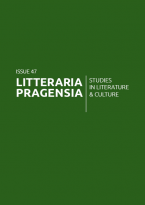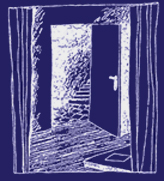
|
24.47 From Consumerism to Corpora: Uses of ShakespeareEdited by: Martin Procházka Volume: 24 Issue: 47 July 2014 |
Contents
|
Martin Procházka
Introduction
|
1 |
|
Jean-Christophe Mayer
First Folio Readers' Marks: Monumentalizing Shakespeare and Empowering the Self
show abstract
This article focuses on annotated First Folio editions of Shakespeare’s works. Most of the inscriptions in these volumes date back to the period between 1623 and the 1780s when these volumes became “black boxes” of early modern human self-expression and identity. The essay first maps out the broad aspects of the material world of readers, showing how mundane and textual objects circulate and coalesce with traces of human activity. Then, it examines some of the traces left by early readers and their effects. Indeed, “graffiti” in early editions of Shakespeare in particular can have a monumentalizing effect on the work, but can also empower readers’ selves. Building on these discussions, the article throws light on the intimate transactions between selfhood, the Shakespearean text and the world. This leads to a study of social networks, but also of readers’ uses of figures in their editions and their relation to dates and time. It concludes on the idea that some readers’ use of their First Folios as semi-private diaries helped them develop a sense of existence and that such practices could well be considered as experiments in life writing.
|
4 |
|
Ton Hoenselaars
Surviving with Shakespeare in World War I and II
show abstract
This essay explores an alternative approach to the study of life behind barbed wire during World War I and II. It does so by studying the internees’ engagement with ‘Shakespeare,’ as they read, taught, discussed, cited and performed his plays and poems. One advantage of this method is that ‘Shakespeare’ may be found nearly everywhere. This facilitates comparative research in the cultural life of the internees in the various camps. Moreover, the playwright and his work also enable a degree of original contextualisation, which significantly enhances our insight into the lives of those involved. Studying the manifestation of Shakespearean cultures in captivity in this way, we are in a position – via textual analysis and literary history – to make the camps tell us the often silenced stories that we must want to hear.
|
27 |
|
Clara Calvo
Portia and the Suffragists: The Merchant of Venice as a "New Woman" Play
show abstract
With the Armistice of 11 November 1918, military activity did not come to a halt. Soldiers were not immediately demobilised, and some British military units occupied the Rhineland after the Treaty of Versailles (June 1919). With plenty of Allied soldiers to be entertained, army-related theatrical activity continued in occupied territories. This paper is concerned with two post-Armistice productions of Shakespeare by British servicemen in non-English speaking countries, both of which uncharacteristically had women in the female roles. These two productions – Twelfth Night in Salonica in 1919 and The Merchant of Venice in Cologne in 1920 – show how WWI nurses and professional actresses from the London stage contributed to the porous boundary which divides professional and amateur Shakespeare. The presence of a Jewish actress and playwright, Inez Bensusan, in the cast of the Cologne Merchant of Venice, and the lectures of a suffragist in Manchester, Mrs Leo Grindon, invite a close reading of the play in terms of gender rather than race, suggesting how suffragists could foreground Act V, often supressed on the late nineteenth-century stage, and read it as a “New Woman” play.
|
48 |
|
Florence March
Shakespeare at the Avignon Festival: Breaking Down the Walls
show abstract
The Avignon Arts Festival was created by Jean Vilar with a production of Richard II in 1947, as a way to restore national cohesion in the aftermath of WWII. Vilar’s idea of a theatre for all people led him to develop theatrical activities outside Paris, making him a major actor of the decentralisation, and to break with Italian style theatre, particularly with the convention of the fourth wall. Vilar staged Richard II in the Honour Court of the medieval Popes’s Palace, today listed as a World Heritage Site by UNESCO and the neuralgic centre of the festival. The choice of this venue, which was meant to revive the Greek and Elizabethan traditions of open-air theatre addressing large and diversified audiences nevertheless challenged and still challenges theatrical performances, which are either magnified or totally annihilated by the monumental upstage wall charged with history. Vilar claimed that Shakespeare’s drama, a constant in the festival since 1947, helped him to negotiate with the wall. The article purposes to question the different modes of interaction between corpus and venue: to what extent does the genius loci inform Shakespearean performances? And how does Shakespeare’s adaptogenic drama reveal itself appropriate to invent new theatrical forms, far from what Vilar denounced as “Shakespeare’s guaranteed income”?
|
72 |
|
Richard Chapman
"Small Is Beautiful?" Shakespeare's Sonnets As a Linguistic Corpus
show abstract
Corpus linguistics is taking an ever more significant place in the analysis of language, and contributing substantially to the way dictionaries and textbooks are written. Since the advent of computers these corpora have been growing in size, and, at the same time, in perceived authority. A presumed objectivity is combined with technological glitz to produce a scenario in which judgements based on corpus-led research have become prescriptive and even proscriptive. While the benefits of large-scale studies and the statistical analysis of language phenomena are recognised, this article presents a brief critique of current corpus linguistics in layman’s terms, and offers a proposal for a bottom-up approach to language analysis. Shakespeare’s Sonnet Cycle is then taken as the body of text for an initial experimentation in the use of a micro corpus. Some early findings are then very briefly described.
|
84 |
|
Sabine Schülting
"What Is't You Lack?" Material Culture in Thomas Middleton's A Chaste Maid in Cheapside
show abstract
Reading Thomas Middleton’s A Chaste Maid in Cheapside (1613) from the perspective of Material Culture Studies, this article draws attention to the crucial role of material objects in early modern plays and on the early modern stage. In particular, it probes Douglas Bruster’s claim that early modern city comedies not merely reacted to the massive influx of consumer goods in early seventeenth-century England but also “theorized” the changes brought about by this new fascination with, and availability of, material objects. The plays’ negotiations of material culture include the complex interactions between subjects and objects in the fictional world of the plays, the presence of these objects as props on stage and items on sale in the theatre, and the material culture of the audience in early modern London.
|
97 |
|
Review of
Charles L. Crow
A Companion to American Gothic
Chichester: John Wiley & Sons, Ltd, 2014. 612 pp.
→ Christopher Gonzales, From Foreboding Wilds to Suburban Distopia: American Gothic in the International Community |
112 |


